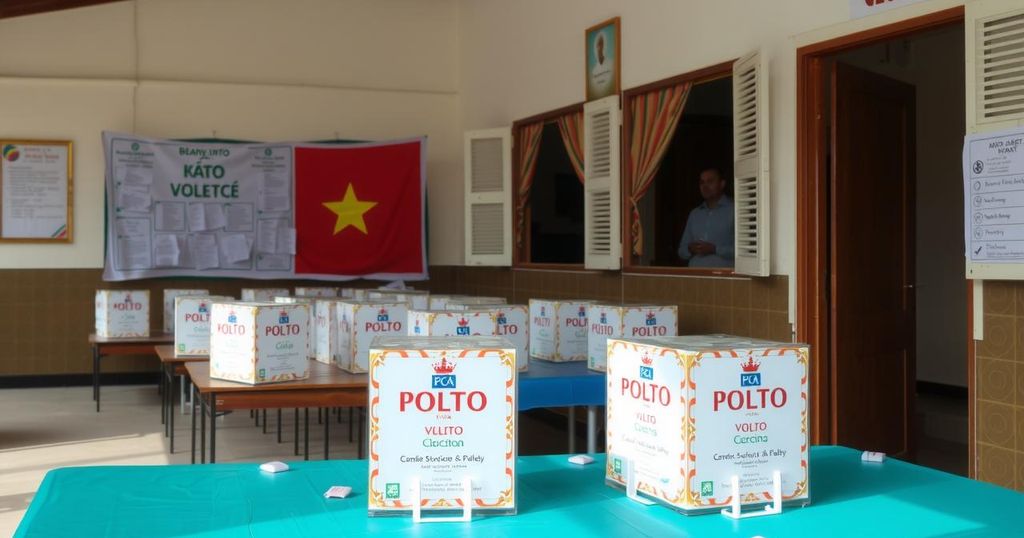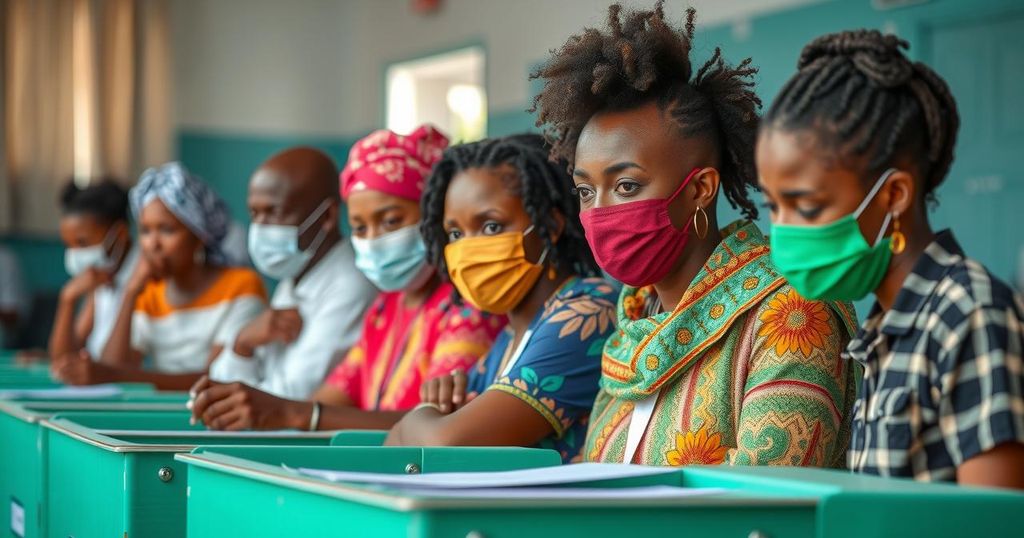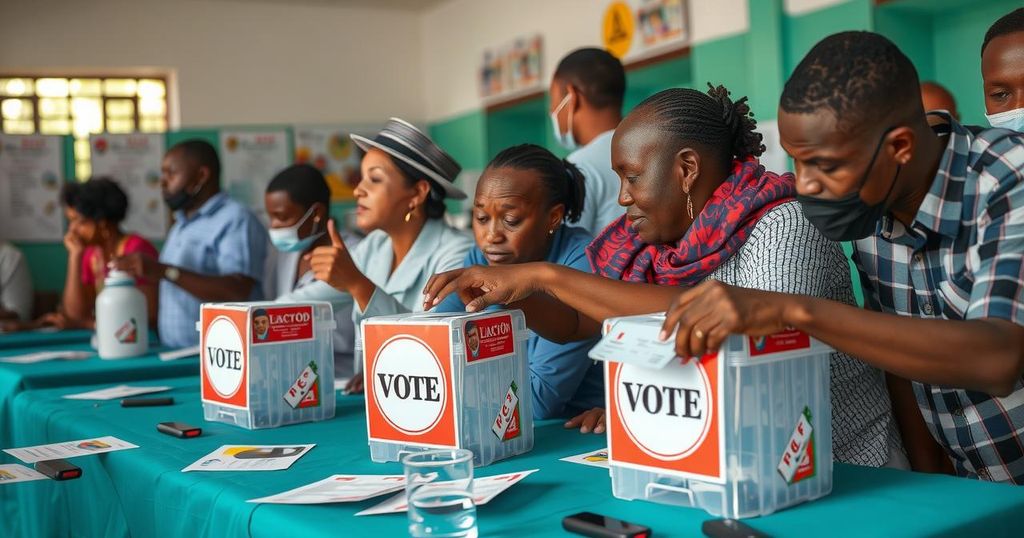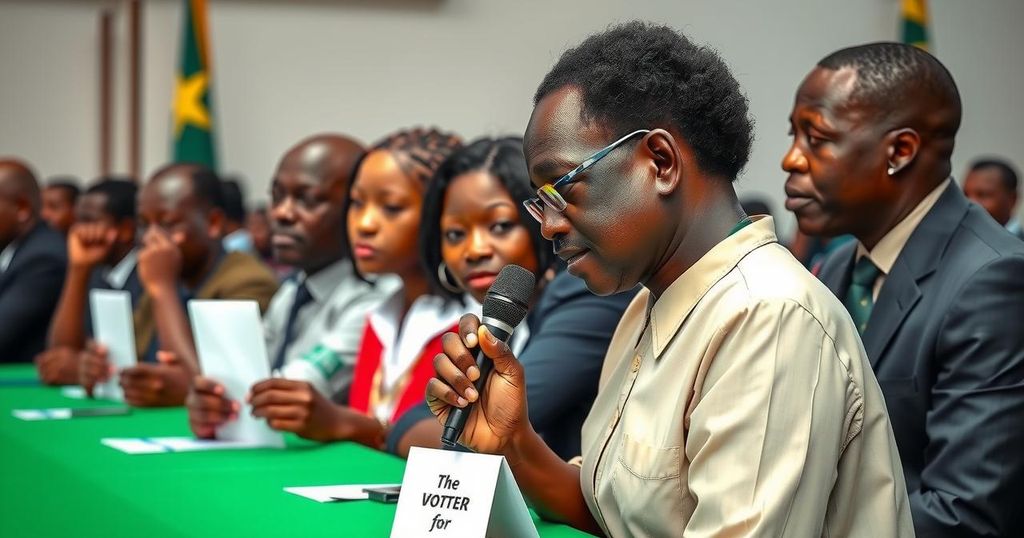World news
ABDALLAH SAMBI, AFRICA, AUSTRALIAN ASSOCIATED PRESS, AZALI ASSOUMANI, COMOROS, ELECTION FRAUD, GOVERNANCE, GOVERNMENT, HAMIDOU KARIHILA, HOPE OF THE COMOROS, INDIAN OCEAN, INDIAN OCEAN ARCHIPELAGO, JUWA, NO, NOUR EL - FATH, OPPOSITION, POLITICS, PRESIDENTIAL ELECTION, REUTERS, SUPREME COURT
Ethan Kumar
0 Comments
Comoros Elections: Voters Head to the Polls in a Tense Political Climate
Comoros voters are electing a 33-seat parliament amid allegations of electoral fraud. Approximately 338,000 voters are registered. President Azali Assoumani’s rule has faced stern criticism, particularly concerning his son’s rising power. While some factions are boycotting the elections, others argue that participation is crucial to expose the ruling party’s weaknesses. Results are expected by Friday.
Voters in Comoros are casting their ballots to elect members of the parliamentary assembly, which consists of 33 seats. This election follows the controversial re-election of President Azali Assoumani, whose leadership has been criticized for alleged electoral misconduct. Approximately 338,000 voters are registered, and polling stations opened early on Sunday, with results anticipated by Friday. The last parliamentary elections took place in January 2020 and saw the Supreme Court approve nearly 100 candidates for this election.
Assoumani has held power since 1999, returning to prominence through a coup. His opponents accuse him of suppressing political dissent and preparing his son, Nour El-Fath, for succession. In a controversial move, President Assoumani bestowed extensive authority upon his son in 2024, a decision seen by critics as an effort to consolidate power within his family. Despite a boycott call from some opposition factions, including the Juwa party—led by imprisoned former President Ahmed Abdallah Sambi—others urged participation to highlight flaws within the current regime. Hamidou Karihila, from the opposing Hope of the Comoros party, remarked, “The Azali regime is weakened … by participating in these elections we are contributing to further exposing the flaws in its system and accelerating its inevitable fall.”
The archipelago nation of Comoros, located in the Indian Ocean, has a tumultuous political history, notably marred by coups and accusations of autocratic governance. President Azali Assoumani, who first seized power in 1999, has been re-elected multiple times amid widespread claims of electoral fraud. His recent attempts to extend his influence through familial succession have exacerbated tensions, leading various political factions to either boycott these elections or support participation as a means to challenge the status quo. The Supreme Court’s role in validating candidates reflects the ongoing legal and political battles that shape Comorian politics.
The elections in Comoros serve as a significant event in the archipelago’s political landscape, revealing the ongoing struggles between the ruling party and opposition factions. With allegations of electoral manipulation and calls for boycotts, the outcome will potentially have profound implications for Assoumani’s regime and the future governance structure of the nation. The participation of opposition parties may illuminate the regime’s vulnerabilities and indicate a collective desire for political reform.
Original Source: www.areanews.com.au




Post Comment